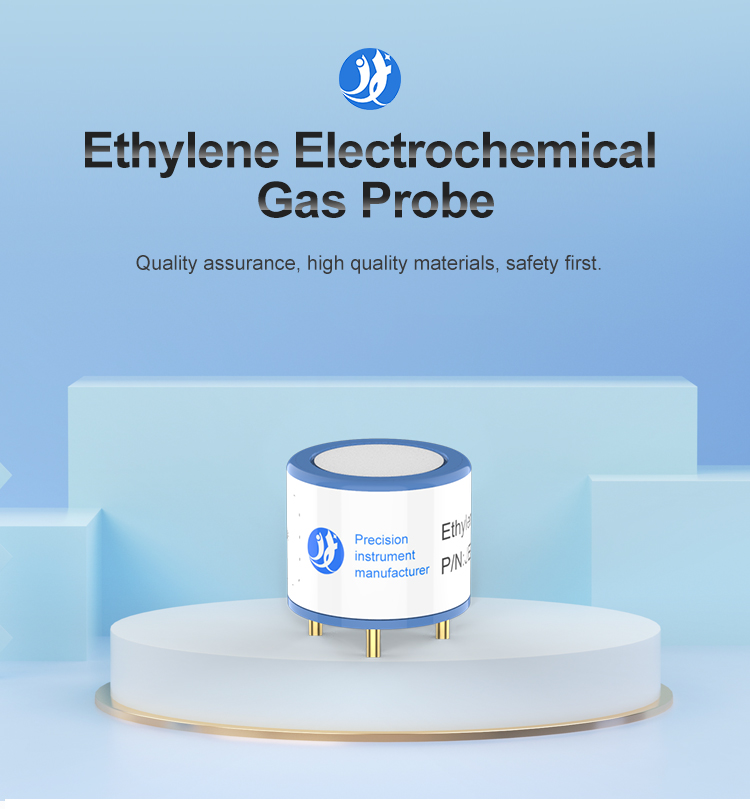Introduction to Ethylene Gas Detectors
Ethylene gas detector are devices designed to detect and measure the concentration of ethylene gas in the surrounding environment. These detectors utilize various detection technologies such as photoionization, electrochemical, or infrared sensors to accurately quantify ethylene levels. They provide real-time monitoring and alarm capabilities, enabling proactive measures to be taken when ethylene concentrations exceed desired thresholds.

Understanding the Impact of Ethylene Gas
Ethylene gas has both positive and negative effects on agricultural produce and horticultural products. It acts as a signaling molecule during ripening, promoting uniform fruit coloration, softening, and flavor development. However, high ethylene concentrations can lead to overripening, increased susceptibility to disease, and reduced shelf life. By monitoring ethylene levels, industry professionals can effectively manage the ripening and storage processes to ensure optimum product quality.
Advantages of Ethylene Gas Detectors
Ethylene gas detector offer several advantages in safety and quality control. Firstly, these detectors provide rapid and accurate ethylene measurements, allowing for immediate response to ethylene-related issues. This ensures timely interventions to prevent spoilage and maintain product quality. Secondly, ethylene gas detectors help optimize storage conditions, allowing for better control over ripening processes and extending the shelf life of perishable goods. Additionally, by monitoring ethylene levels, ethylene gas detectors contribute to a safer working environment by alerting personnel to potentially hazardous conditions.
Application in the Food Industry

Ethylene gas detectors find extensive application in the food industry, particularly in post-harvest handling and storage facilities. By continuously monitoring ethylene levels, these detectors aid in managing the ripening process of fruits and vegetables. They help prevent premature spoilage and maintain product quality during transportation and storage. Ethylene gas detectors are also used in controlled atmosphere storage systems, where ethylene levels must be closely monitored to regulate ripening and suppress decay in stored produce.
Application in the Floral Industry
In the floral industry, ethylene gas detectors play a crucial role in maintaining flower quality and extending vase life. As cut flowers are highly sensitive to ethylene, the presence of even trace amounts can lead to wilting, petal discoloration, and premature flower drop. Ethylene gas detectors enable early detection of ethylene levels in storage or transport environments, allowing for appropriate measures to be taken to preserve the freshness and longevity of floral products.
Integration with Control Systems and Data Analytics
Ethylene gas detectors can be integrated with control systems and data analytics platforms to enhance their functionality. By connecting ethylene gas detectors to automated ventilation or ethylene scrubbing systems, real-time ethylene measurements can trigger actions to control ethylene concentration levels. Integration with data analytics allows for historical trend analysis, helping identify patterns and optimize storage conditions for improved quality control.
Future Developments and Challenges
Continual advancements in sensor technology and data analysis algorithms will drive the evolution of ethylene gas detectors. Future developments may include enhanced sensitivity and selectivity, wireless connectivity, and integration with Internet of Things (IoT) platforms for remote monitoring. Challenges to address include sensor calibration, ensuring compatibility with different storage environments, and promoting wider adoption of ethylene gas detectors across the industry.
Ethylene gas detectors play a crucial role in enhancing safety and quality control in industries such as food and floral. By continuously monitoring ethylene levels, these detectors enable proactive interventions to prevent spoilage, extend shelf life, and maintain product quality. Integration with control systems and data analytics further enhances their functionality and optimization capabilities. As technology continues to advance, ethylene gas detectors will remain valuable tools in ensuring safe and high-quality produce, contributing to a more sustainable and efficient supply chain.